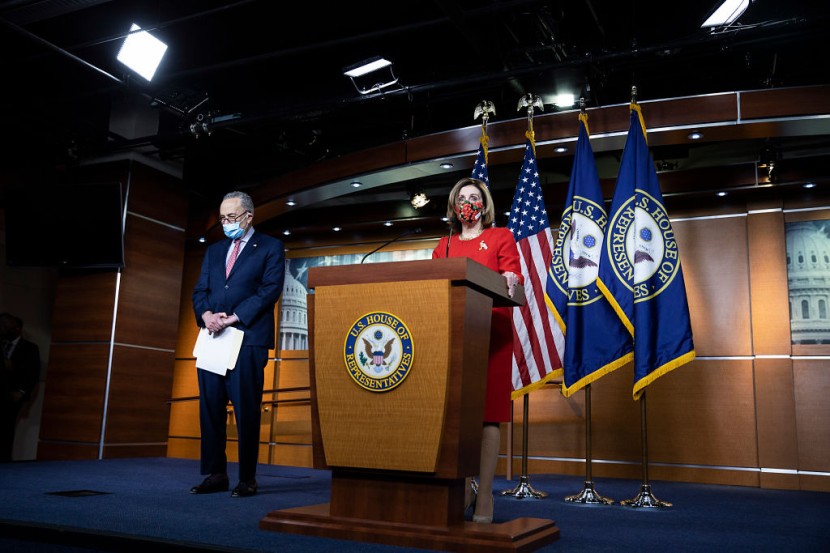
Designed for providing the long-awaited assistance to American industries, and small businesses ailing from the COVID-19 pandemic, both chambers of Congress passed a $900 billion relief measure on Monday night.
Pairing to the $900 billion package is the $1.4 trillion omnibus spending bill that will fund the federal government through September.
Divided into two parts, the vote of the House of Representatives first includes the Commerce, Justice, Defense; Science; which was passed by a 327 to 85 vote, CBS News reported.
The second part involves eight spending bills which include the coronavirus relief bill and passed by a margin of 359 to 53.
The measures were then compiled together and sent straight to the Seate, where the legislation passed by a vote of 92-6, and now the bill goes to the White House for the signature of President Donald Trump to become law.
According to Roll Call, despite being delayed after months of unsuccessful negotiations, congressional leaders reached a deal on the coronavirus measure on Sunday, which ended the monthslong stalemate between Democrats and Republicans that delayed the aid to those hardest hit by the public health crisis that devastated the economy of the United States.
Nancy Pelosi, the House Speaker shared in remarks on the House floor on Monday that they will do some good with this legislation but they should recognize that more needs to be done in crushing the virus, which puts more money in the pockets of the American people.
Read also: US Jobless Claims Hit the Lowest in the Pandemic Era, Signals Rise in Employment Amid Crisis
She also added that she is expecting a strong bipartisan vote on the rescue deal.
The legislative text of the 5,593-page package was released shortly before 2 p.m. and lawmakers were bracing for a long night as they finalized it to pass the said measure days before Christmas.
The aid package also includes $600 in direct payments to most Americans alongside $300 weekly in enhanced federal unemployment benefits until March 14, and not less than $284 billion in loans for businesses through the popular Paycheck Protection Program, Federal News Network reported.
Aside from answering financial problems, the relief measure also extended the moratorium on evictions until January 31 which provided $30 billion in accelerating the distribution of COVID-19 vaccines.
The said government spending deal also includes a provision which will end surprise medical billing, an issue with bipartisan support, and establishes a history museum for women and the National Museum of the American Latino.
The $600 checks are only if compared to the ones distributed during spring when the financial problems peaked and under the CARES Act.
Americans who made less than $75,000 in 2019 are eligible for the full $600, with the payments tapering off for those who made up to$100,000 based on the summary of the legislation circulated by lawmakers.
Parents will also get $600 per dependent child, an increase from the $500 that is given under the CARES Act.
Steven Mnuchin, the treasury Secretary shared that it could begin seeing the payments in their bank accounts as soon as next week.
He also added that this is a faster way of getting the money into the economy.
Mnuchin also mentioned that people are going to see the money at the beginning of next week.
Related article: Americans Will Receive Stimulus Checks as Early as next Week, Mnuchin Says








